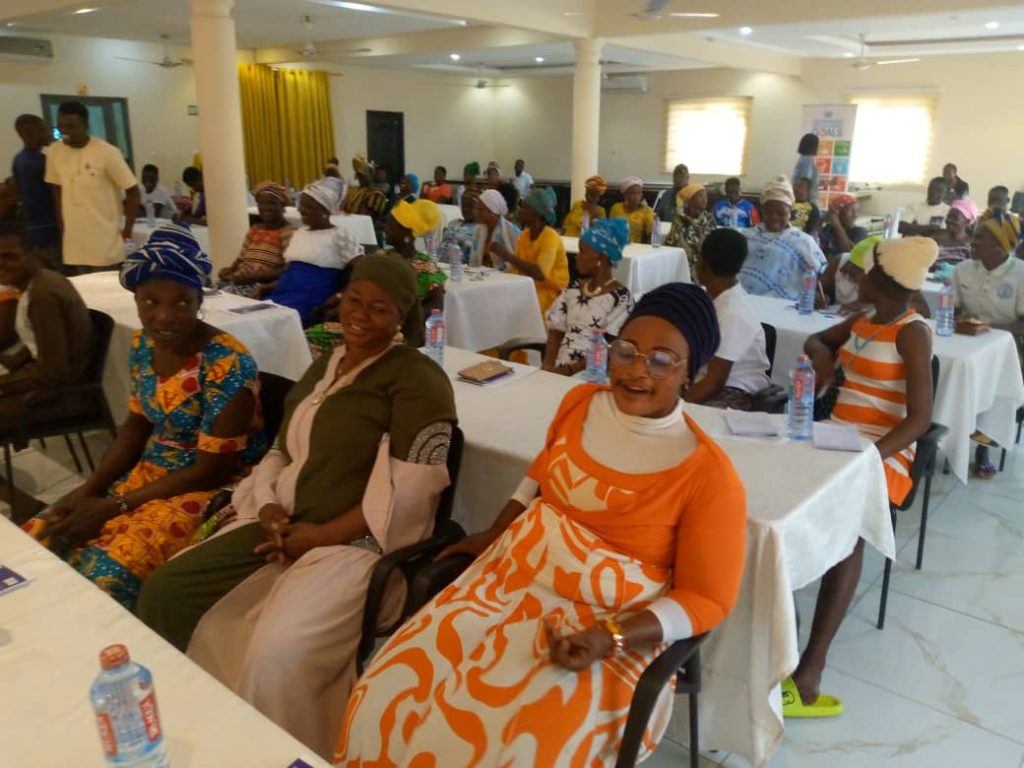By Albert Futukpor
Bole (S/R), Feb 19, GNA – The Savannah Regional Peace Council has trained 60 women and youth in three border communities on dissemination of alternative and counter narrative messages to curb disinformation and hate speeches, especially against minority groups.
The two-day training, held at Bole, also focused on how to leverage women as trusted messengers and peace agents and eschewing the dissemination of hate speeches and all other forms of indecent expressions as an effective tool for the prevention of violent conflicts and violent extremism.
The training, which was organised with support from the United Nations Development Programme (UNDP) and its development partners, was under the Preventive Approach to Protect Development in the Gulf of Guinea (Prevention Facility)-Ghana, which is funded by the Governments of Denmark, Luxembourg and South Korea under UNDP’s Funding Window Programme.
The beneficiary border communities were Saru, Tagalyiri and Dabodarikura; all in the Sawla-Tuna-Kalba District of the region, and the participants were drawn from diverse groups including women groups, traditional leaders, youth groups, clergy and security agencies with emphasis on women and youth.
They were taken through various learning sessions on understanding violent extremism, radicalization and the drivers of violent extremism, the role of women and youth in peacebuilding and preventing violent extremism, Early Warning and Early Response Mechanisms to violent extremism and conflicts, conflict management and resolution amongst others.
A blend of theories and graphics (photos and videos) were used to explain concepts for participants to understand the import and essence of the training.

Ms Melody Azinim, Peace and Governance Analyst at UNDP, speaking during the training, expressed need for appropriate measures to ensure that the growing threat of violent extremism did not come to Ghana.
She said the prevention of violent conflicts and violent extremism was a shared responsibility requiring the active involvement and participation of all groups particularly women and youth in peacebuilding and decision-making processes.
She emphasised that “The active participation and involvement of women, accurate information sharing and timely interventions by the relevant authorities are the surest ways to combating and preventing violent conflicts and extremism in our communities.”
She said the marginalisation of women, existing community conflicts and the prevalence and rise in hate speeches, especially against minority groups, and misinformation were catalysts for violent extremism as they incited hatred and pitch diverse groups against each other.
Ms Azinim said “Based on this, the time and need have come for the improvement of already existing community conflict prevention and management mechanisms by building the capacities of women and youth and to leverage their role as trusted peace agents.”
She urged the participants to share the knowledge with their community members to create and increase awareness on violent extremism at the community level and effectively collaborate with the relevant authorities and security agencies to tackle the menace.
As part of the training, participants were put into groups and each community developed a community action plan, which they would implement to support the response against violent conflicts and extremism.
GNA